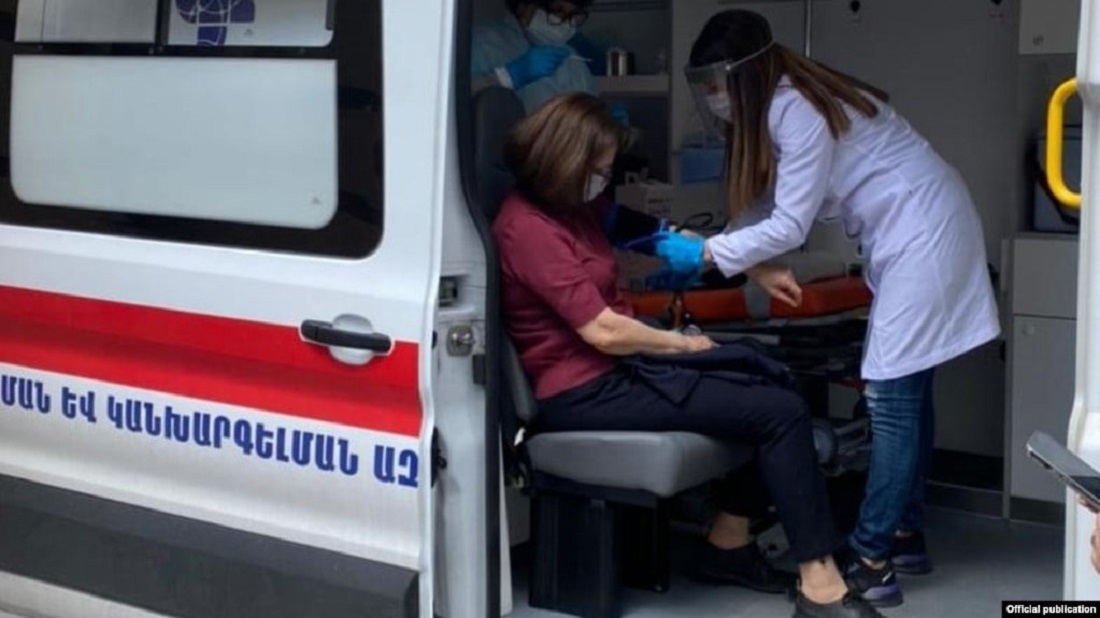Infertility and blood cloths - Covid-19 vaccination myths in Armenia
Vaccination in Armenia
A total of 220,000 coronavirus vaccinations have been administered made by August 15 in Armenia, a country with a population of approximately three million. But even this figure does not provide a lot of optimism. There are a lot of foreigners among the vaccinated, and the separate registration of vaccinations for domestic and foreign citizens in Armenia began only on July 15.
According to official data, by mid-August, only about 10% of Armenian citizens received at least one dose of the vaccine. At the same time, the Ministry of Health states that for the development of herd immunity against the virus, at least 70-80% of the population must get vaccinated.
Doctors and experts associate the reluctance to get vaccinated with the great popularity of anti-vaxxers and the spread of misinformation on social media.
The most popular myth: vaccination leads to infertility
According to the most popular Covid-19 vaccination myth spread in the Armenian media, one cannot have children for 1.5 years after vaccination, and the coronavirus vaccine itself causes infertility.
Svetlana Grigoryan, head of the immunization department at the National Center for Disease Control, says there is no evidence supporting such a claim.
Moreover, the World Health Organization classifies pregnant women as a risk group and recommends them to get vaccinated at any stage of pregnancy.
In April 2021, the Armenian media spread a photo of someone’s hand covered with bruises. Vaccinations were said to be the cause of the bruising. However, the source and date of the photo were not clear.
“Even if it happened after the vaccination, it does not mean that it was caused by the vaccination. It is necessary to establish relationships between various phenomena. In some cases, after vaccination, a decrease in platelet count may occur, which can cause bruising. However, the risk of such cases is very low, it occurs in every four people per million vaccinated”, says Grigoryan.
In general, the possible side effects of all coronavirus vaccines are the same: swelling and soreness at the injection site, headache, general weakness, fatigue, muscle pain, fever, joint pain, chills, and nausea.
Side effects are usually mild or short-lived and rarely occur among older people.
Information repeatedly disseminated by WHO reports states that there is only one contraindication to vaccination against coronavirus: a serious allergic reaction or anaphylaxis from a previous dose or any component of this vaccine. It manifests itself in a large number of rashes, wheezing, swelling of the mouth, throat, shortness of breath, severe hypotension, and allergic shock. In such cases, the next dose of the vaccine is not administered.
“Temporary contraindications to vaccination are moderate and severe infectious or somatic diseases, in which the vaccine is administered immediately after recovery. With exacerbation of chronic diseases, vaccination is carried out in remission, and it is permitted if accompanied by therapy. In case of progressive neurological diseases (progressive encephalopathy, uncontrollable types of epilepsy), vaccination is carried out during the period of stabilization of clinical phenomena”, the Armenian Ministry of Health said.
“I still speak Russian with a Caucasian accent, I have not yet turned into Putin, no one has inserted chips into my body”, 32-year-old Yerevan resident Naira Sahakyan said in her Facebook post after receiving the first dose of the Russian Sputnik-V vaccine.
She says that she was looking forward to the arrival of the vaccines in Armenia, despite widespread misinformation about the coronavirus vaccine. She received her second dose of vaccine in June.
Naira Sahakyan says that it is necessary to defend oneself against the virus, and not against the drugs that fight it, and maintains a constant thread about this on her Facebook page. “This is how I try to break the chain of disinformation, at least among my acquaintances”, she says.
Of the seven vaccines recommended for use by the World Health Organization, only two are available in Armenia: the Anglo-Swedish AstraZeneca and the Chinese Sinovac-CoronaVac. In addition, the Russian-made Sputnik-V vaccine is available, but it is not yet on the list of those approved by WHO.
Of the 22 coronavirus vaccines produced in the world, only seven have received final WHO status assessments:
- Pfizer/BioNtech Comirnaty
- AstraZeneca (Anglo-Swedish, Korean production)
- Covishield
- Janssen (developed by Johnson & Johnson)
- Moderna
- Sinopharm
- Sinovac-CoronaVac
All of these vaccines are mainly used in the European Union, the United States, and Canada. Vaccinations with vaccines that are not included on this list may prevent one from entering these countries.



















